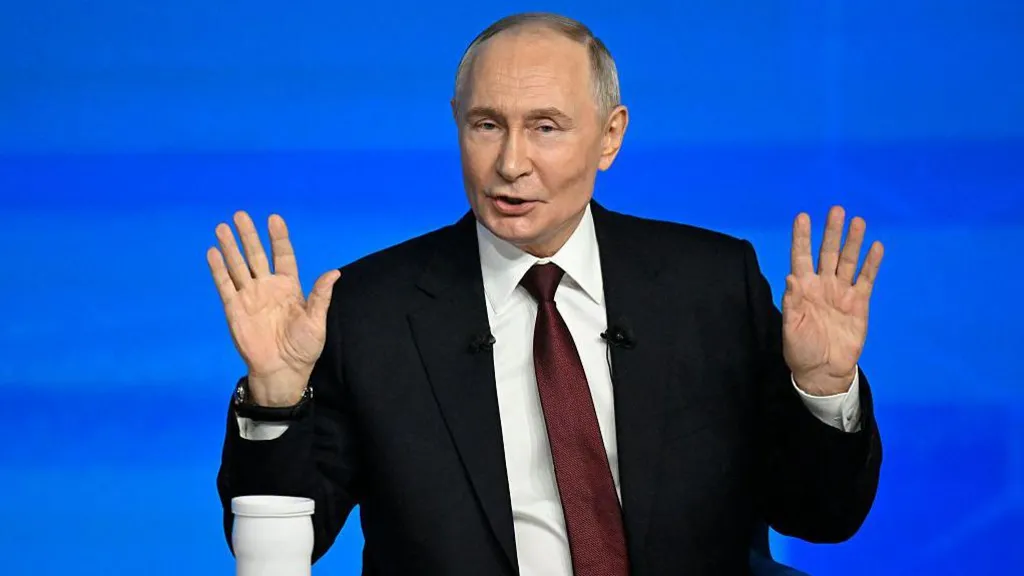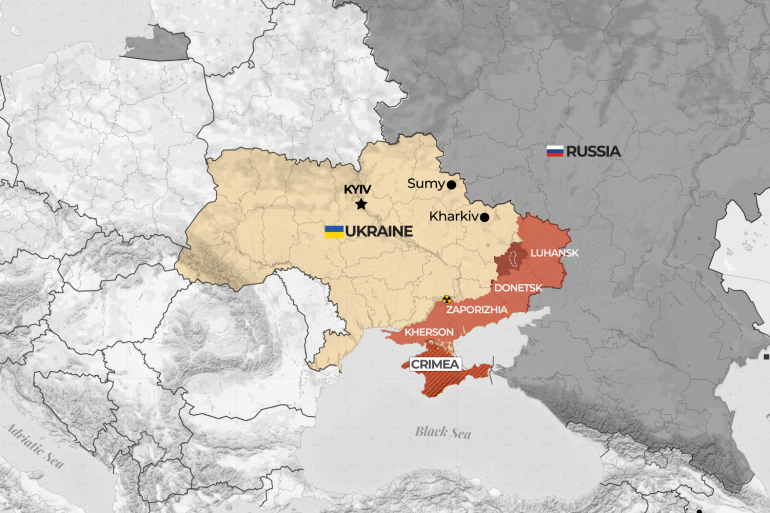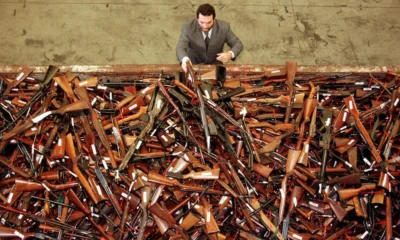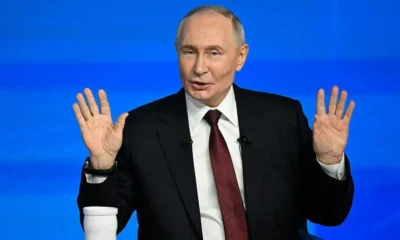war
The Nuclear Factor

IT was April 1994. Pakistan’s army chief Gen Waheed Kakar was on an official visit to Washington. Pakistan was under military and economic sanctions imposed by the US on the nuclear issue in 1990. As a result, a wide range of military equipment including 28 F16s that Pakistan had paid for was embargoed.
Against this backdrop, the nuclear issue dominated most of Gen Kakar’s meetings. In one meeting with top US military and State Department officials, which I also attended as Pakistan’s ambassador to Washington, our American interlocuters offered to release all our equipment including the planes if Pakistan agreed to freeze its nuclear programme and allow a one-time inspection to verify a cap on enrichment. Gen Kakar listened patiently and then politely told his hosts: “Gentlemen, I come in friendship but we in the East do not measure our relationship in planes and tanks. You can keep our F16s and our money. Our national security is non-negotiable.”
I recall this meeting as one example of how resolutely and uncompromisingly Pakistan maintained its position on an issue vital to its security. Had it not done so and caved into international pressure it would not have acquired the nuclear capability which is and has been the guarantor of the country’s security. There has been no all-out war between Pakistan and India since both neighbours became nuclear powers, despite regular crises, skirmishes and military confrontations.
The latest crisis has again thrown this into sharp relief. True, India has acted on its doctrine of limited war under the nuclear threshold, to try to push the boundaries and enlarge space for this in every successive crisis. It has also become the first nuclear power to attack another nuclear state by missiles and air strikes. It has sought to create a ‘new normal’ by launching kinetic actions in mainland Pakistan whenever there is a terror attack in occupied Kashmir, for which it holds Pakistan responsible without evidence.
Pakistan’s strategic capability remains the guarantor of its security against a full-scale war.
In the latest crisis, India used all the instruments of modern, hybrid warfare — ballistic missile strikes, drones, disinformation, psy-ops and weaponising water to undermine deterrence. But Pakistan’s conventional capabilities deterred India from provoking an even larger conflict. Pakistan’s counteractions (initially downing Indian fighter aircraft) imposed heavy costs on India for its aggression. Retaliating to the second round of unprovoked Indian attacks, including on its air bases, Pakistan launched a military operation involving air strikes, missiles and armed drones against Indian military bases and infrastructure in and much beyond Kashmir. A ceasefire followed soon after brokered by Washington and announced by President Donald Trump.
Pakistan’s military response was designed to re-establish deterrence while blunting the aims of limited war and thwarting India’s effort to seek space for conventional war under the nuclear overhang. India’s reckless actions escalated the crisis to a dangerous level and drove it into uncharted territory — almost to the edge of all-out war. But its military brinkmanship had to stop well short of Pakistan’s known nuclear red lines. Thus, were it not for the nuclear factor, a full-scale war could have broken out.
https://www.dawn.com/news/card/1909301
The story of Pakistan’s pursuit of a nuclear capability is worth recalling to remind ourselves of the formidable challenges that were faced — and overcome — to acquire it. Confronted with an implacable adversary Pakistan initially pursued a strategy of external balancing by forging military alliances with the West to counter India and its hegemonic ambitions.
But the lesson of the country’s defeat and dismemberment in 1971 was that it could only depend on itself for its security. India’s nuclear explosion in 1974 was a turning point. It convinced Pakistan of the imperative to acquire nuclear weapons. Western countries, however, sought to punish Pakistan for India’s explosion by adopting discriminatory policies and denying it technology.
Pakistan faced innumerable obstacles in its nuclear journey. It braved Western embargoes, sanctions and censure, US opposition and unrelenting international pressure to stay the course. It took the country 25 years of arduous effort to build a strategic capability and even longer to transform that into an operational deterrent with an effective delivery system. That objective could not have been achieved if successive civilian and military governments had not all pursued this regardless of costs but confident that a firm national consensus backed the effort.
The book Eating Grass by Feroz Khan, published some years ago, describes the fascinating interplay between geostrategic shifts, key political and scientific figures and evolution of strategic beliefs, which shaped Pakistan’s nuclear decisions. It is a riveting insider account of the country’s quest for a nuclear capability and the challenges it encountered. Its title is inspired by Zulfiqar Ali Bhutto’s much-cited remark that if India built the bomb, “we will eat grass, even go hungry, but we will get one of our own”.
https://www.dawn.com/news/card/1756369
Khan explains how Pakistan mastered the nuclear fuel cycle despite heavy odds. He credits this not to a few individuals but to the collective determination of hundreds of people in the civil-military establishment. However, what ultimately determined nuclear success was the cadre of scientists and engineers whose talent was tapped in the country’s early years and who were motivated by the resolve not to let India’s strategic advances go unanswered.
A book that focuses on a different aspect of Pakistan’s nuclear journey is The Security Imperative: Pakistan’s Nuclear Deterrence and Diplomacy by Zamir Akram, an outstanding diplomat. Nuclear diplomacy played a critical role in the country’s efforts to develop a strategic capability which Akram chronicles with illuminating insights. A key theme of his book is how Pakistan’s diplomacy navigated through the discriminatory landscape erected by the West, while advancing its nuclear and missile programmes.
As a diplomat I witnessed first-hand the international pressure mounted on the country. Pakistan was asked to unilaterally sign the Comprehensive Test Ban Treaty, agree to inspection of its nuclear facilities, sign up to negotiations for a Fissile Material Cut Off Treaty in the UN’s Conference on Disarmament and curb its missile development. Pakistan said no to all of the above to protect its security interests.
Because of such decisions and the exceptional efforts of those who built Pakistan’s strategic capability its security is assured against a full-fledged war by India. Similar commitment is needed to deal with internal challenges, especially to build a strong, self-reliant economy so that the country is not vulnerable to external pressure.
The writer is a former ambassador to the US, UK and UN.
Published in Dawn, May 12th, 2025
war
Putin vows no more wars if West treats Russia with respect

Russia’s President Vladimir Putin has said there will be no more wars after Ukraine if Russia is treated with respect – and claims that Moscow is planning to attack European countries are “nonsense”.
In a marathon televised event lasting almost four and a half hours, he was asked by the BBC’s Steve Rosenberg whether there would be new “special military operations” – Putin’s term for the full-scale war.
“There won’t be any operations if you treat us with respect, if you respect our interests just as we’ve always tried to respect yours,” he asserted.
His remarks were in line with a recent comment in which he said Russia was not planning to go to war, but was ready “right now” if Europe wanted to.
He also added the condition,”if you don’t cheat us like you cheated us with Nato’s eastward expansion”.
He has long accused Nato of going back on an alleged 1990 Western promise to then Soviet leader Mikhail Gorbachev before the fall of the Soviet Union. Gorbachev later denied the remark had been made.
The “Direct Line” marathon combined questions from the public at large and journalists from across Russia in a Moscow hall, with Putin sitting beneath an enormous map of Russia that encompassed occupied areas of Ukraine, including Crimea.
Russian state TV claimed more than three million questions had been submitted.
Although it was largely choreographed, some critical comments from the public appeared on a big screen, including one that referred to the event as a “circus”, another bemoaning internet outages and one that highlighted poor-quality tap water. Mobile internet outages have been blamed by authorities on Ukrainian drone attacks.
Putin also addressed Russia’s faltering economy, with prices rising, growth on the slide and VAT going up from 20 to 22% on 1 January. One message to the president read: “Stop the crazy rise in prices on everything!”
The Kremlin regularly uses the end-of-year event to highlight the resilience of the economy and, as Putin spoke, Russia’s central bank announced it was lowering interest rates to 16%.
Foreign policy issues were mixed with musings about the motherland, praise for local businesses, fish prices and the importance of looking after veterans.
But the issue of almost four years of full-scale war in Ukraine was never far away and it was often in the background of many of the questions.
Putin again claimed to be “ready and willing” to end the war in Ukraine “peacefully” but offered little sign of compromise.
He repeated his insistence on principles he had outlined in a June 2024 speech, when he demanded that Ukrainian forces leave four regions Russia partially occupies and that Kyiv gives up its efforts to join Nato.
Chief among Russia’s demands is full control of Ukraine’s eastern Donbas, including about 23% of Donetsk region which Russia has not been able to occupy.
war
360° on the Russia–Ukraine Peace Plan

Paris (Imran Y. CHOUDHRY) :- Former Press Secretary to the President, Former Press Minister to the Embassy of Pakistan to France, Former MD, SRBC Mr. Qamar Bashir analysis : The search for peace between Russia and Ukraine has entered a new and complicated phase, shaped not only by events on the battlefield but by the conflicting ambitions of global powers, domestic pressures on leaders, and the shifting calculus of international diplomacy. For nearly three years, the world has watched the war drag on with unrelenting devastation, and yet none of the principal actors—Russia, Ukraine, the United States, or Europe—have fully embraced a compromise that could end the conflict. Today, diplomacy is active but still gridlocked. Negotiators produce frameworks, counter-frameworks, and amendments, but the distance between what Moscow demands and what Kyiv can accept remains wide enough to keep real peace out of reach. A full 360° examination reveals that every stakeholder wants peace on their own terms, and those terms often collide instead of converging.
The latest chapter in this ongoing diplomatic effort began when the United States unveiled a detailed 28-point peace proposal designed to force movement where the front lines had stalled. The Trump administration hoped that a comprehensive framework could bring Kyiv and Moscow toward a ceasefire, territorial compromise, and eventual normalization of relations. But the plan ignited controversy immediately. Many in Europe and Ukraine interpreted it as leaning heavily toward Moscow’s demands—especially on territory, NATO membership, and the size of Ukraine’s armed forces. Trump publicly expressed frustration that he could not “end the war in 24 hours” as he had long promised on the campaign trail, discovering instead that the political, military, and emotional realities of the conflict were far more complex than campaign rhetoric allowed.
Ukraine’s response was swift and firm. President Volodymyr Zelensky called the idea of trading territory for peace “absolutely unacceptable,” repeating his longstanding position that Ukraine cannot cede land to legitimize Russia’s aggression. Kyiv also rejected any limits on the size or structure of its army, arguing that a nation under invasion must reserve the right to defend itself without external constraints. Recent speeches in European parliaments—particularly Zelensky’s appearance in Stockholm—reinforced Ukraine’s demand that Russia pay for the war through reparations and frozen assets. In Kyiv’s view, peace without justice would simply embolden future aggression, turning Ukraine into a precedent rather than a victor.
Yet Ukraine also faces military fatigue, economic strain, and internal pressure to find a path toward stability. That is why Zelensky agreed to meet U.S. diplomats in Geneva, where a “refined peace framework” was announced. The revised American position, though not publicly detailed, signaled a shift toward accommodating Ukraine’s red lines on sovereignty and security guarantees. It was a diplomatic maneuver designed to reassure Kyiv while keeping Moscow tentatively engaged. However, without public details, the framework remains more of a political gesture than a concrete roadmap, and Russia has not formally endorsed it.
On the Russian side, President Vladimir Putin has alternated between signaling openness to negotiations and insisting that Russia’s territorial gains remain non-negotiable. Moscow said the original U.S. proposal could serve as a “basis for further discussion,” primarily because it reflected several longstanding Russian demands: a guarantee that Ukraine would never join NATO, international acceptance of the annexed regions, and a demilitarized Ukraine incapable of threatening Russian territory. For the Kremlin, any settlement must also include the phased lifting of Western sanctions—preferably early in the process rather than at the end. Putin has emphasized that Russia will not halt operations unless the political settlement secures these goals, and he has warned that if Ukraine rejects the deal outright, Russian forces will “resolve it on the ground.”
The United States now finds itself occupying an awkward middle ground. It remains Ukraine’s principal military backer, but it is also attempting to shape a diplomatic settlement that could end a war with global economic and strategic consequences. The political pressure on Washington is tangible. Inside the U.S., critics argue that the administration’s proposal either forces Ukraine toward capitulation or, conversely, does too little to compel Moscow. Trump’s impatience—calling for a deal “before Thanksgiving”—clashes with the slow pace of diplomatic reality. U.S. envoys have tried to smooth the fissures by insisting that Washington will not impose peace on Ukraine, while simultaneously pushing for a framework that would satisfy Moscow enough to freeze the conflict.
Europe’s role has become increasingly assertive. After two years of relying heavily on U.S. leadership, European governments now insist that peace cannot be brokered through a bilateral U.S.–Russia channel. Officials in Berlin, Warsaw, Paris, and London have emphasized that European security architecture is directly affected by whatever settlement emerges. They warn that any agreement that rewards Russia could destabilize Europe for decades. Many European capitals are quietly drafting an alternative peace package emphasizing tougher security guarantees for Ukraine, long-term military support, and maintaining frozen Russian assets until reparations are addressed. European leaders publicly describe recent diplomatic movement as “promising,” but privately they express concern that Washington’s desire for a quick deal could undermine Ukraine’s sovereignty and Europe’s stability.
China, though not directly involved in the latest negotiations, continues to promote its earlier 12-point peace blueprint calling for a ceasefire, negotiation, and respect for sovereignty—while opposing unilateral sanctions. But Beijing avoids demanding Russian withdrawal and instead emphasizes “legitimate security concerns of all parties,” a phrase widely interpreted as support for Moscow’s objections to NATO expansion. China’s stance gives Russia diplomatic cover and economic stability but also enables Beijing to present itself as a global peacemaker without assuming real responsibility for the outcome.
India maintains a carefully balanced position, calling repeatedly for dialogue and diplomacy while avoiding any criticism of Moscow. New Delhi has become one of the largest buyers of discounted Russian oil, even as it increases exports of refined fuels—ironically, some of which end up in European markets. India portrays itself as a potential bridge between East and West, but it has not presented a concrete peace proposal. Instead, it limits its role to public messaging and quiet diplomacy.
With so many competing perspectives, what is the actual trajectory of peace? Diplomatically, activity has increased; substantively, the gap remains as wide as ever. The United States wants a deal but cannot impose one. Ukraine wants peace without sacrifice. Russia wants concessions Kyiv cannot accept. Europe wants a settlement that does not reward aggression. China wants stability without compromising its relationship with Moscow. India wants neutrality without irrelevance.
Most experts predict that a final peace deal remains distant. The war has not reached a point where either side believes the battlefield has exhausted its political value. Absent a dramatic military shift or a major political transition in Moscow, Kyiv, or Washington, the most plausible near-term outcome is not full peace but a limited arrangement—perhaps a sectoral ceasefire around the Black Sea or a monitored freeze along a defined front line. Even such limited steps, however, require trust, guarantees, and enforcement mechanisms that the parties have not yet agreed upon.
A comprehensive settlement that resolves territorial disputes, security guarantees, sanctions, and reparations may ultimately require a new geopolitical moment—one in which either Russia recognizes the cost of perpetual war or Ukraine recalibrates its conditions for peace under global pressure. Until then, the negotiations will continue, the frameworks will multiply, and diplomats will fly from Riyadh to Geneva to Ankara hoping that one day the war will finally bend toward resolution. But for now, the Russia–Ukraine peace plan remains an aspiration more than a destination, suspended between what the world hopes for and what the parties can actually accept.
war
‘There was a state of terror’: Sudan hospital worker describes fleeing before alleged massacre

A man who escaped the last functioning hospital in the Sudanese city of el-Fasher before a reported massacre by paramilitary troops says he has lost all hope and happiness.
“I have lost my colleagues,” Abdu-Rabbu Ahmed, a laboratory technician at the Saudi Maternity Hospital, told the BBC.
“I have lost the people whose faces I used to see smiling… It feels as if you lost a big part of your body or your soul.”
He was speaking to us from a displaced persons camp in Tawila some 70km (43 miles) to the west of el-Fasher, the regional hub which was taken over by paramilitary Rapid Support Forces (RSF) in the last week of October after an 18-month siege.
The RSF has been fighting the Sudanese army since April 2023, when a power struggle between their leaders erupted into a civil war.
The alleged killings of at least 460 patients and their companions at the Saudi Hospital were one of the most shocking among widespread accounts of atrocities – some of them filmed by RSF fighters and posted to social media.
In a statement of condemnation, the World Health Organization (WHO) said it was “appalled and deeply shocked” by the reported shootings, and by the abductions of six health workers – four doctors, a nurse and a pharmacist.
The RSF has dismissed the accusations as disinformation, declaring that all of el-Fasher’s hospitals had been abandoned. It disputed the claims by filming a video inside the hospital grounds showing female volunteers tending to patients.
A freelancer based in Tawila gathered interviews for the BBC.
Mr Ahmed told him he had carried on working at Saudi Hospital since the beginning of the war, despite regular shelling by artillery, tanks and drones – which destroyed parts of the buildings and injured doctors and nurses as well as patients.
Medical staff used to share what little food was available as the RSF blockade tightened, he said, sometimes working without breakfast or lunch.
Most of them fled when the paramilitary fighters launched their final assault.
“The shelling started around six in the morning,” Mr Ahmed said.
“All civilians and soldiers headed out towards the southern side. There was a state of terror, and as we walked, drones were bombing us. And heavy artillery too – I saw many people die on the spot, there was no-one who could save them.”
Mr Ahmed said some of the fleeing medical workers arrived with him in Tawila, but many were detained in locations north-west of the city, naming the Garni area, the villages of Turra and Hilla al-Sheikh and the town of Korma.
Some were transferred to Nyala, he said, the RSF’s de facto capital in South Darfur.
“This is the information I received from colleagues we know,” he told the BBC, saying that he later heard medical staff who remained at the hospital were executed.
Mr Ahmed also lost much of his family: a sister and two brothers were killed that day, and his parents are missing.
“I am very worried about the fate of the people inside el-Fasher,” he added.
“They may be killed. And they may be used as human shields against the [Sudanese air force] airstrikes.”
Like many other men suspected of being soldiers, Mr Abdu-Teia was stopped at the Garni checkpoint and interrogated, he says. The two men with him were taken, but the RSF let him go.
“They didn’t beat me, but they questioned me a lot, because of my injury, I think. They said: ‘We know you are a soldier, but you’re finished – you will die on the road. So just go.”
Mr Abdu-Teia says the RSF brought some medicine to Garni but “the injuries were too many – two or three people died every hour.
“The same day we arrived, vehicles came and took people to unknown places. Any young man who looked physically OK was taken.”
He managed to get a lift to Tawila from “people who had cars”. They charged passengers 500,000 Sudanese pounds ($830, £630) and turned on wi-fi hotspots so they could call their families to transfer money, he said. “We left with them – we had nothing, not even plans.”
Many children arrived at the Tawila camps without parents. Fifteen-year-old Eman was one of them.
Her father was killed in a drone strike in el-Fasher, she told the BBC, and her mother and brother were detained by the RSF as they fled.
“Whoever did not die, [the RSF] ran them over with vehicles,” she said. “They took our belongings and told us all of you are soldiers. They beat my brother and choked him with a chain.
“They wanted to beat my mother. She told us: ‘Go, I will come to you.’ We got into a vehicle and left. They did not allow my brother to get into the vehicle. We left them behind.”
Eman escaped but saw other girls and women who did not.
“They took some women. They took them in their vehicles and stabbed some of them with knives. Some were taken while their mothers couldn’t do anything.”
Female survivors have told horrific stories of gang rapes and the abduction of young girls.
Another teenager on her own, 14-year-old Samar, said she had lost her mother in the chaos at the Garni checkpoint, and her father was arrested.
She was told he was taken to the Children’s Hospital in el-Fasher.
That building had reportedly been serving as an RSF detention centre, and it is where the Yale researchers also said satellite images showed evidence of killings: apparent clusters of bodies as well as earth excavations that could have been a mass grave.
The RSF has issued videos to counter these allegations, declaring that the Children’s Hospital in el-Fasher is ready to receive patients.
One shows a man dressed in a blazer standing outside its gate with a group of what appear to be doctors in hospital scrubs.
“These medical personnel and cadres, they are not hostages,” the man in the blazer says. “We are not taking them as war hostages. They are free. They are free to practise medicine.”
Another man in the video, who introduces himself as Dr Ishaq Abdul Mahmoud, associate professor of paediatrics and child health at el-Fasher University, says: “We are here to help any person in need of medical service.
“We are out of politics. Whether soldiers or [civilians] we are ready to help them.”
Dr Elsheikh of the Sudan Doctors Network dismisses the RSF videos as propaganda.
And Mr Ahmed, the Saudi Hospital laboratory technician in Tawila, knows what he has seen, and he has seen too much.
“I do not have any hope of returning to el-Fasher,” he says.
“After everything that happened and everything I saw. Even if there was a small hope, I remember what happened in front of me.”
Mohamed Zakaria is a freelance journalist from Darfur based in Kampala
Additional reporting by BBC Verify’s Peter Mwai
-

 Europe News10 months ago
Europe News10 months agoChaos and unproven theories surround Tates’ release from Romania
-

 American News10 months ago
American News10 months agoTrump Expels Zelensky from the White House
-

 American News10 months ago
American News10 months agoTrump expands exemptions from Canada and Mexico tariffs
-

 American News10 months ago
American News10 months agoZelensky bruised but upbeat after diplomatic whirlwind
-

 Art & Culture10 months ago
Art & Culture10 months agoThe Indian film showing the bride’s ‘humiliation’ in arranged marriage
-

 Art & Culture10 months ago
Art & Culture10 months agoInternational Agriculture Exhibition held in Paris
-

 Pakistan News6 months ago
Pakistan News6 months agoComprehensive Analysis Report-The Faranian National Conference on Maritime Affairs-By Kashif Firaz Ahmed
-

 Politics10 months ago
Politics10 months agoUS cuts send South Africa’s HIV treatment ‘off a cliff’


















